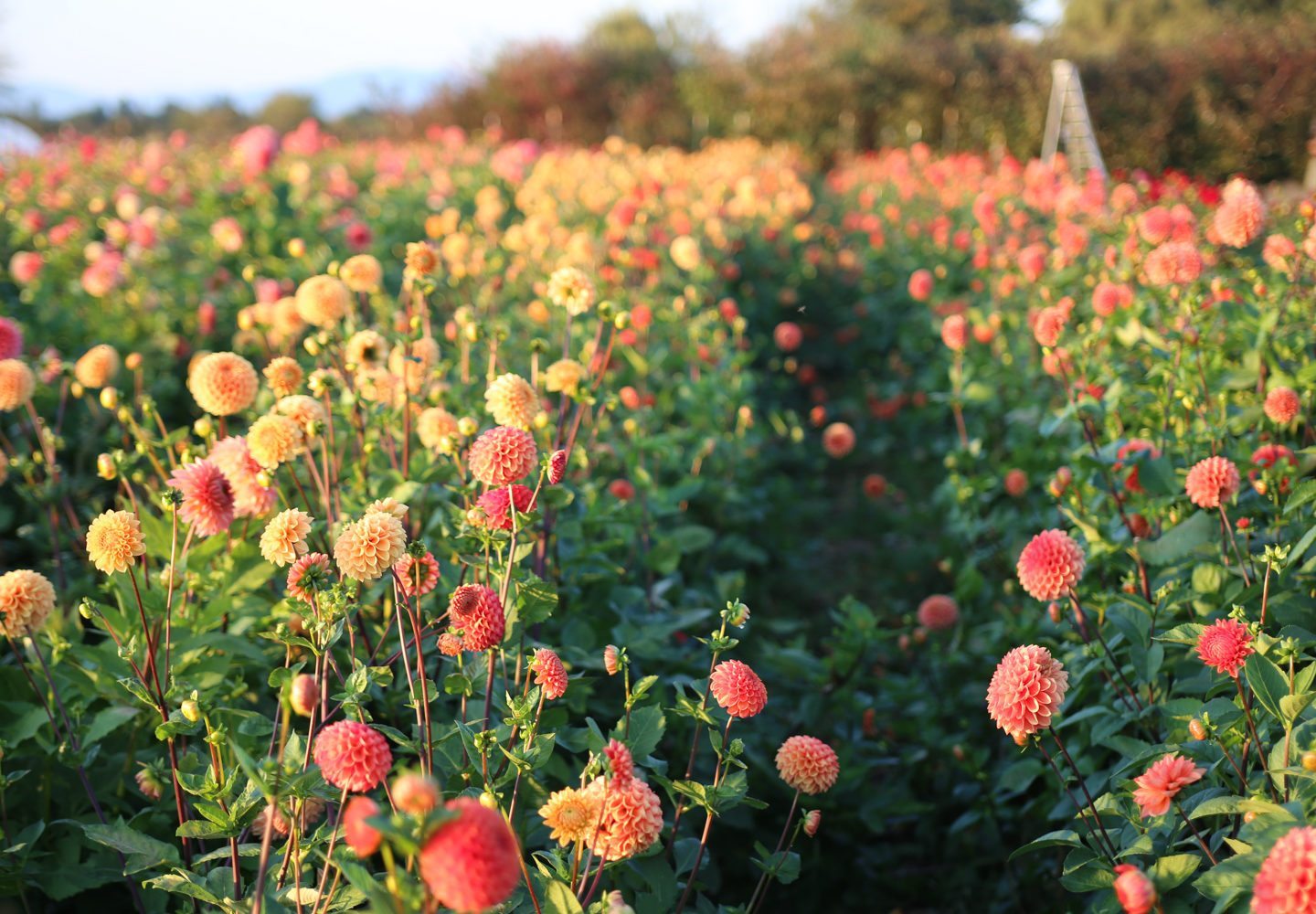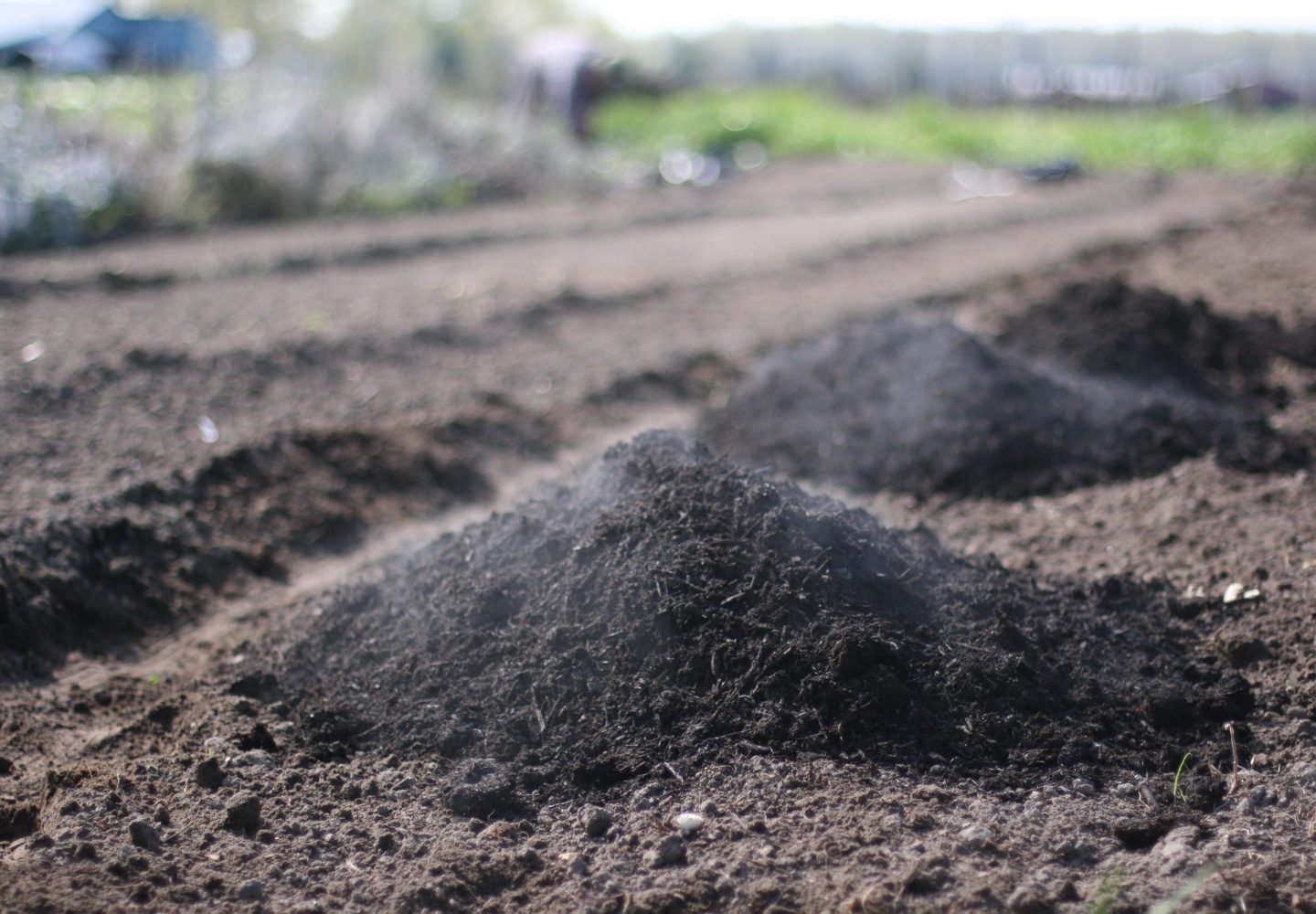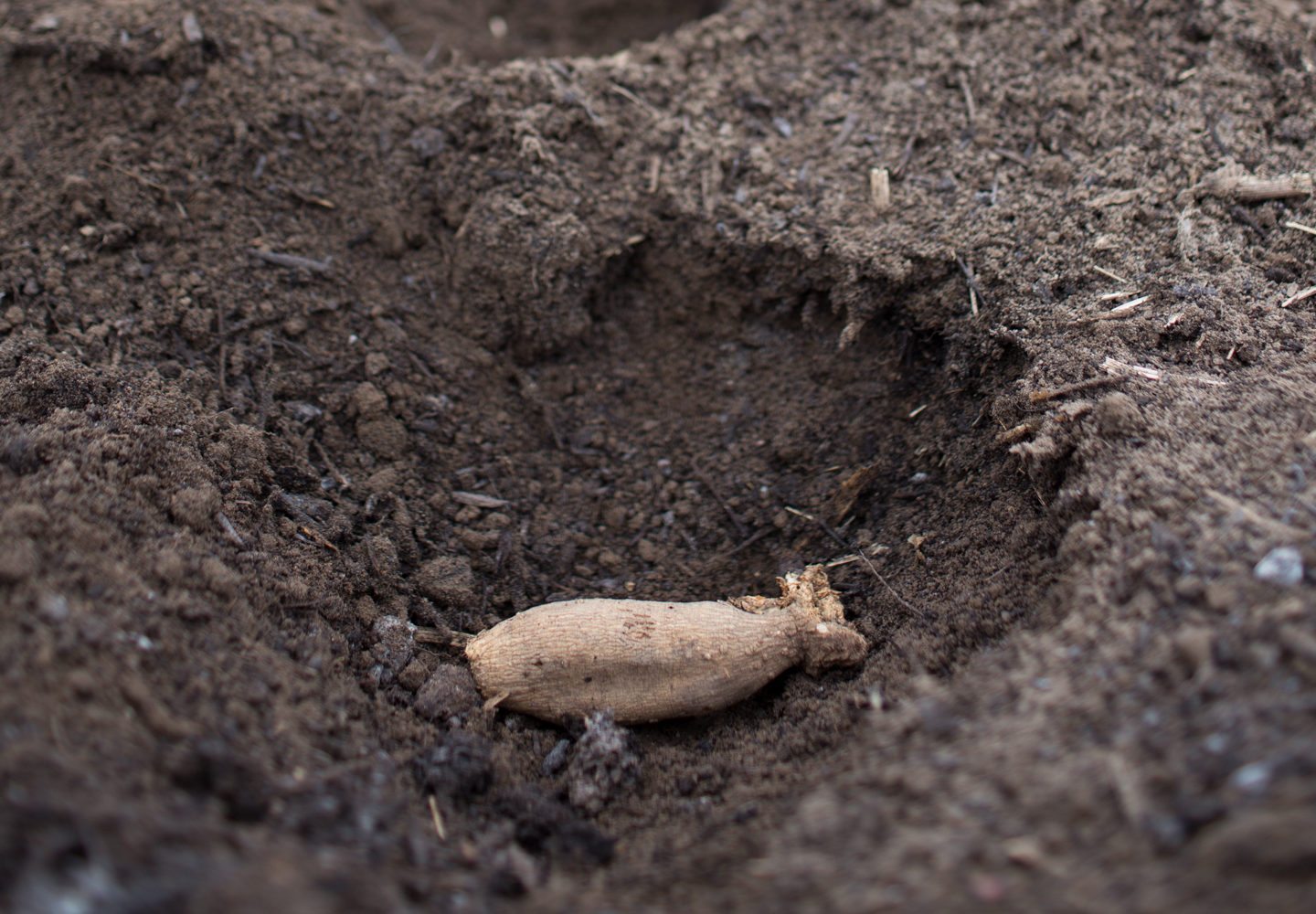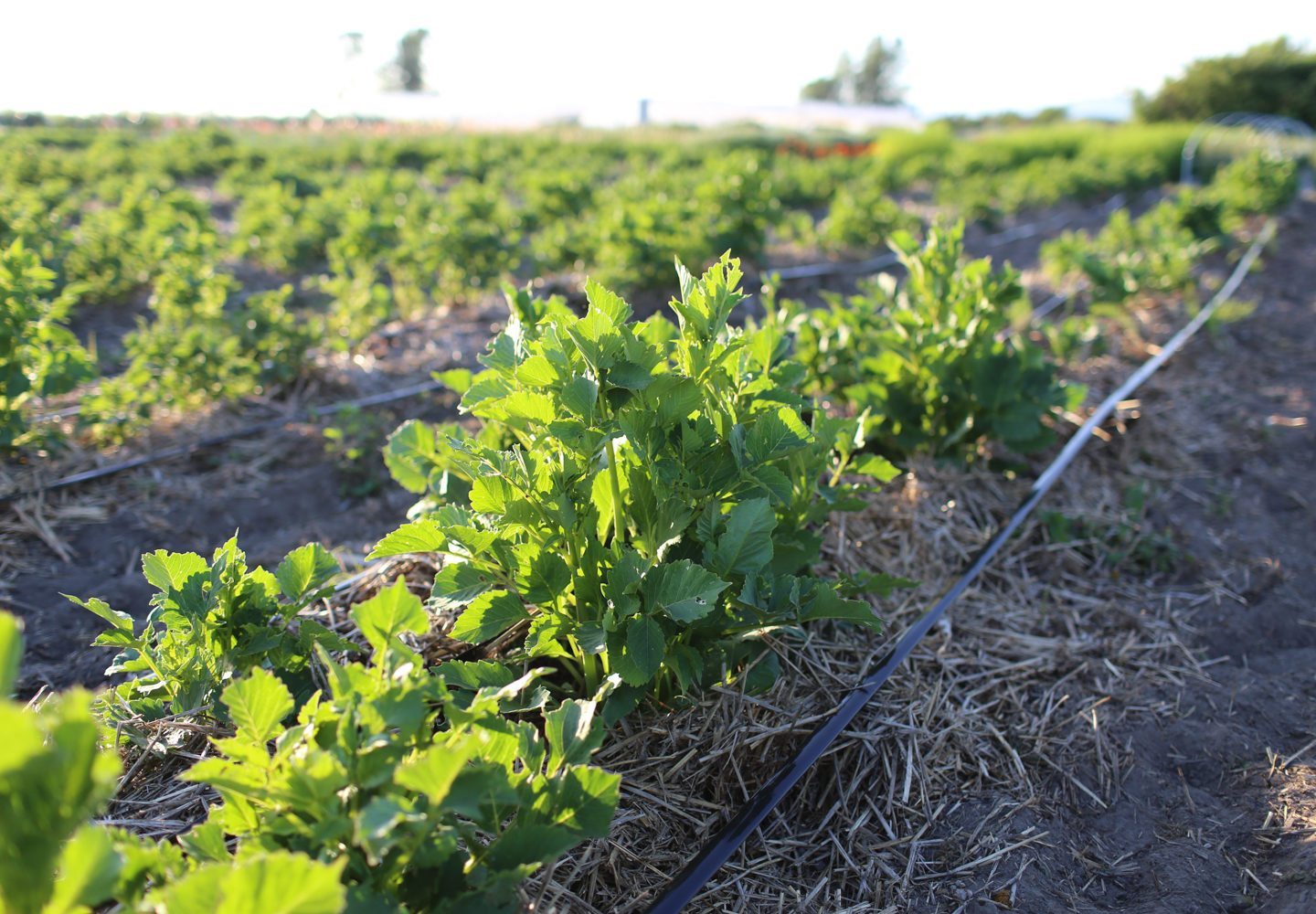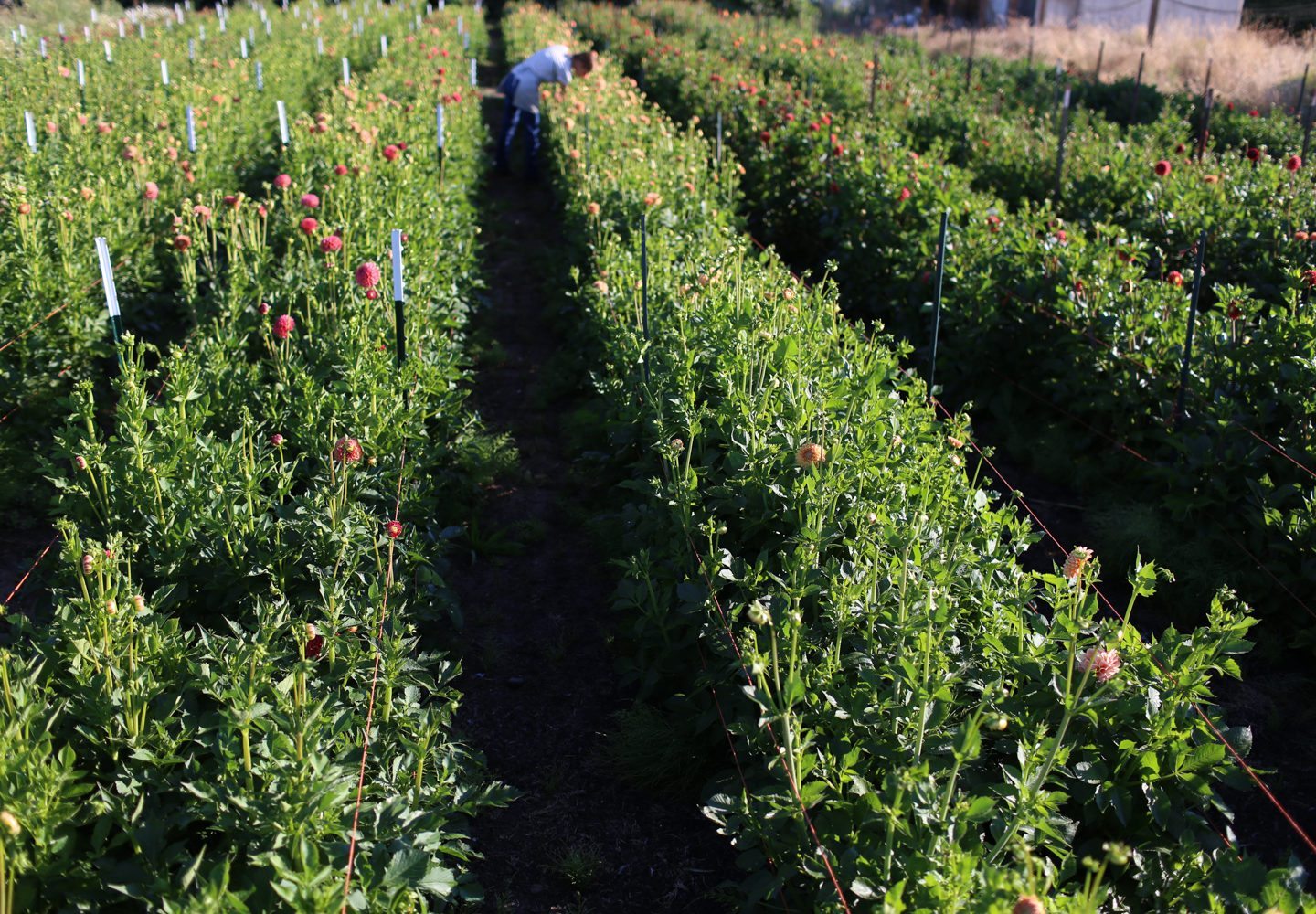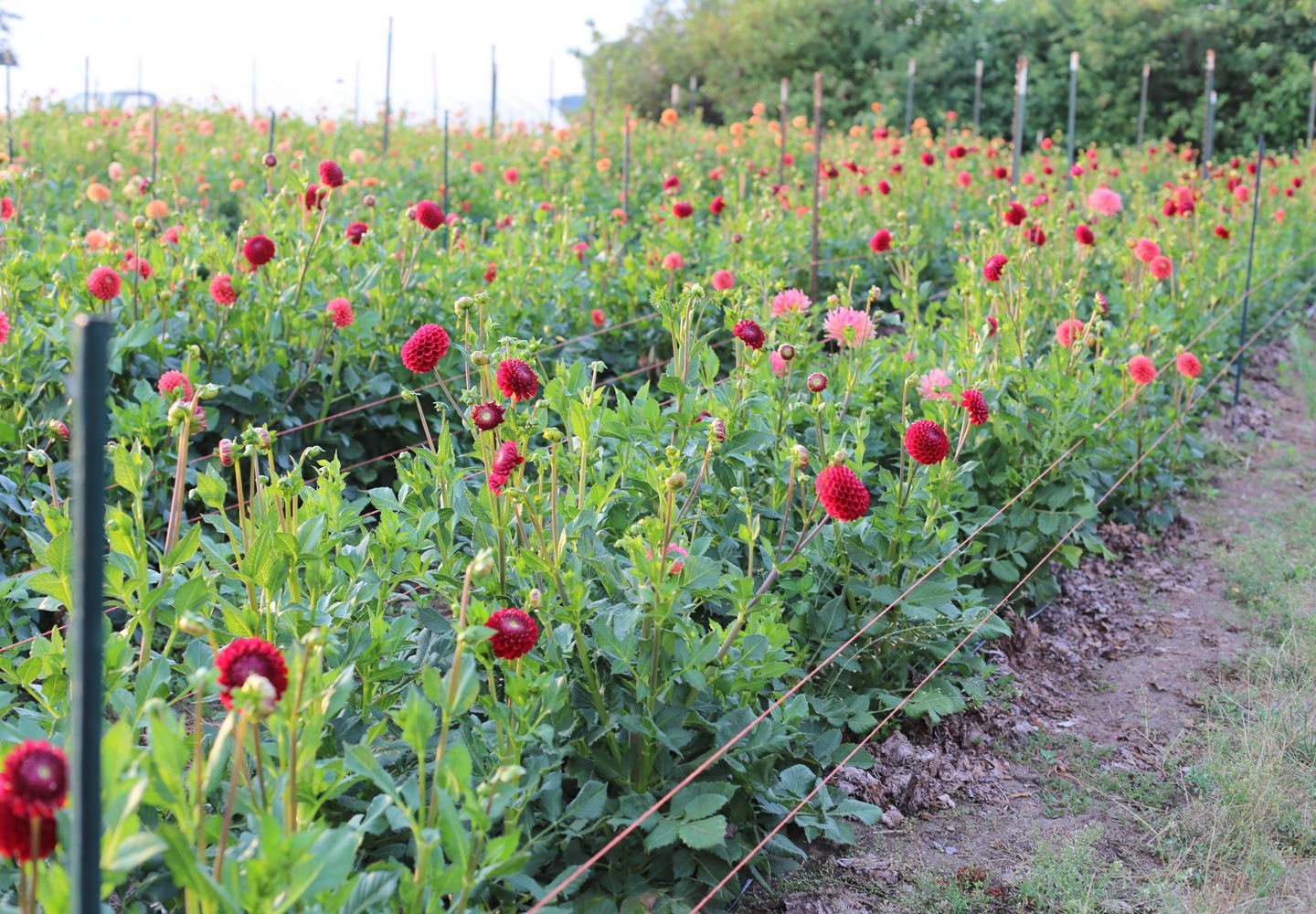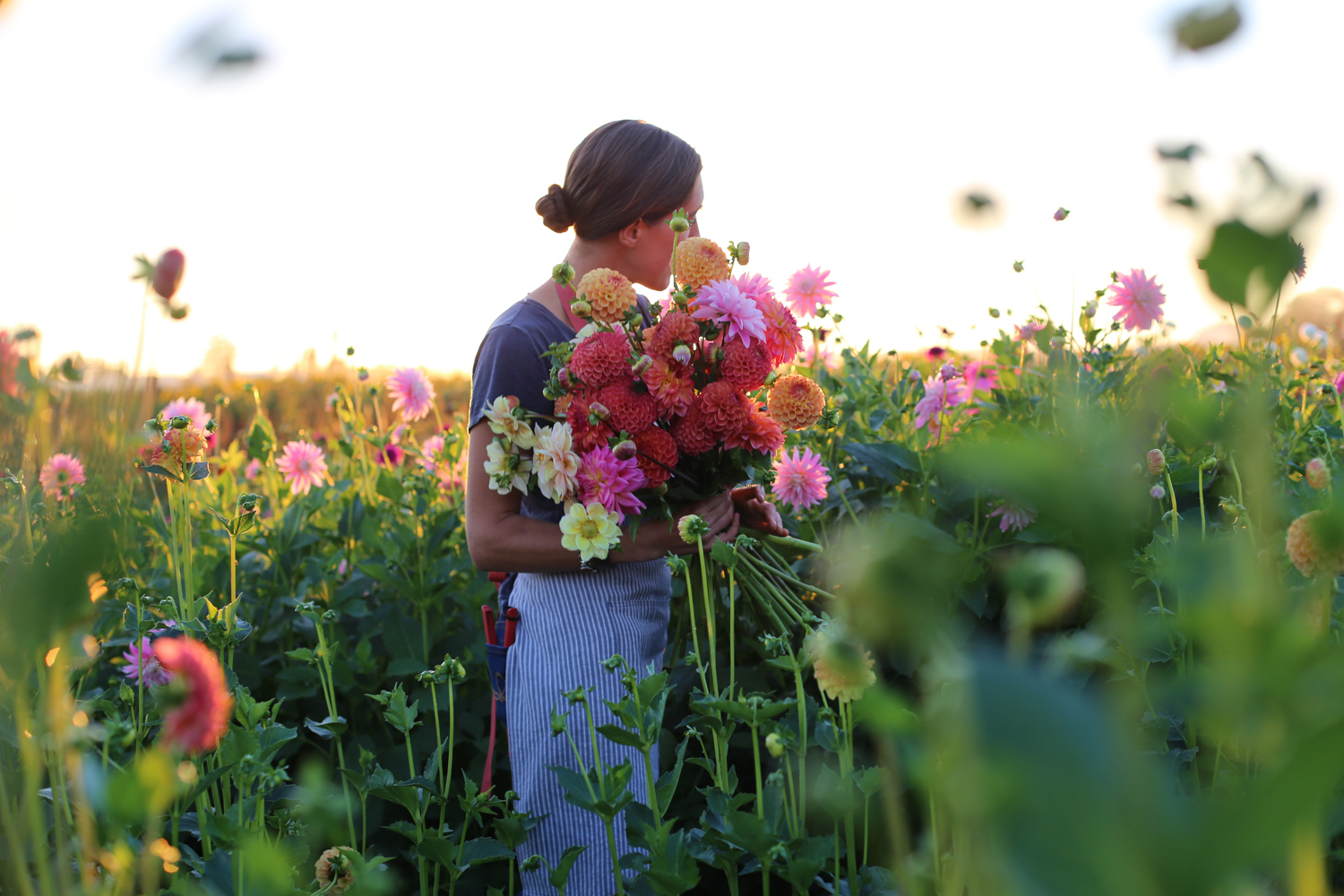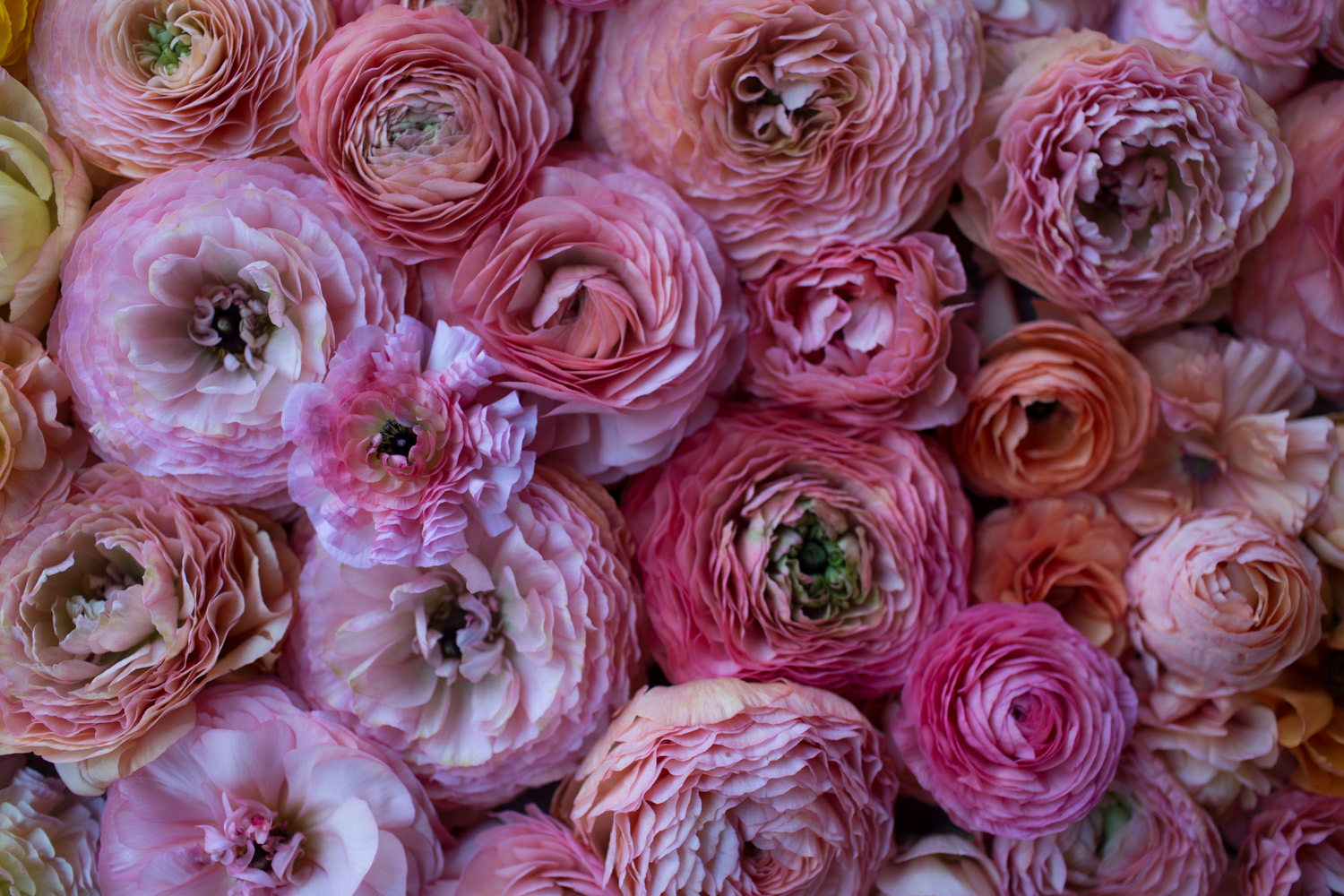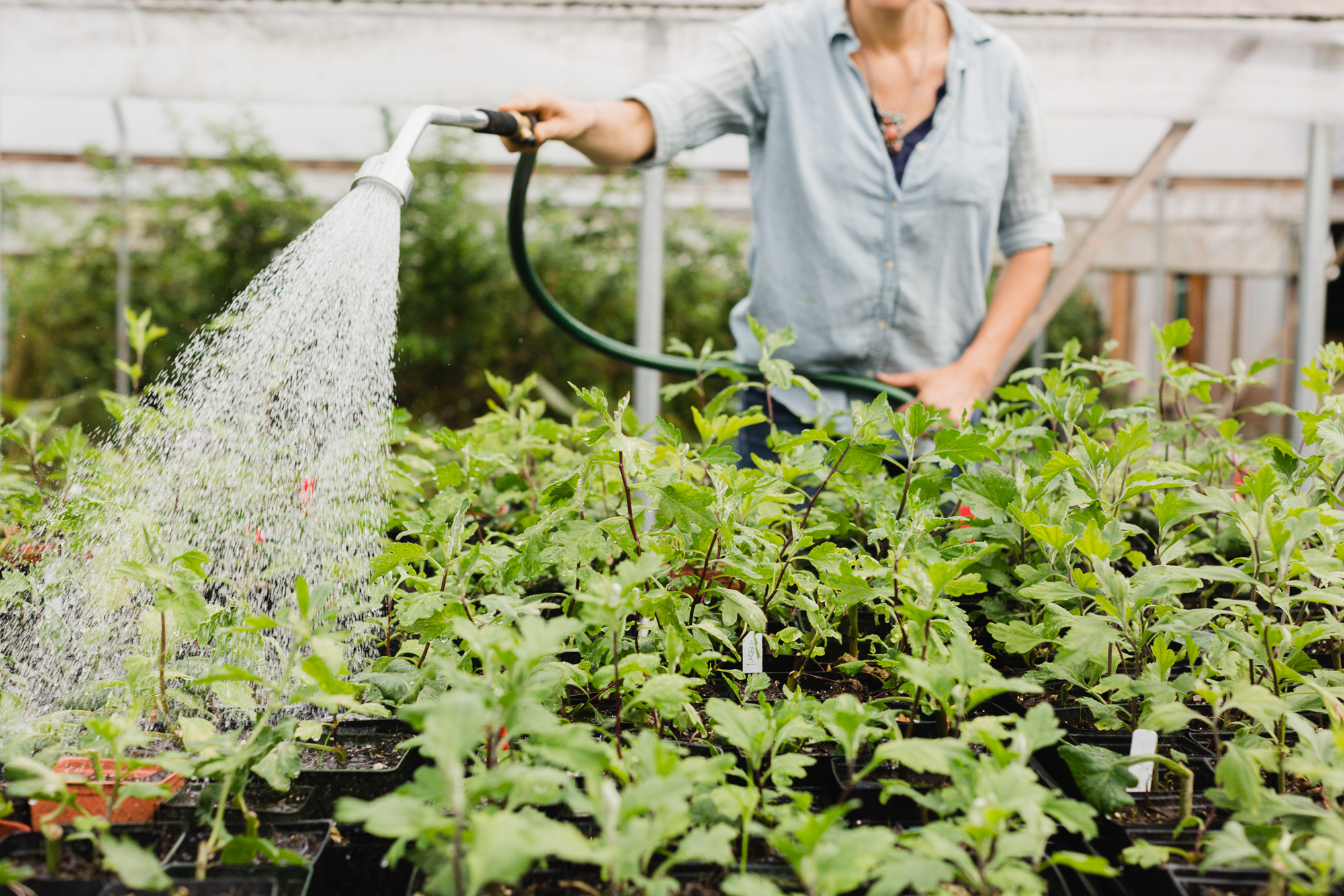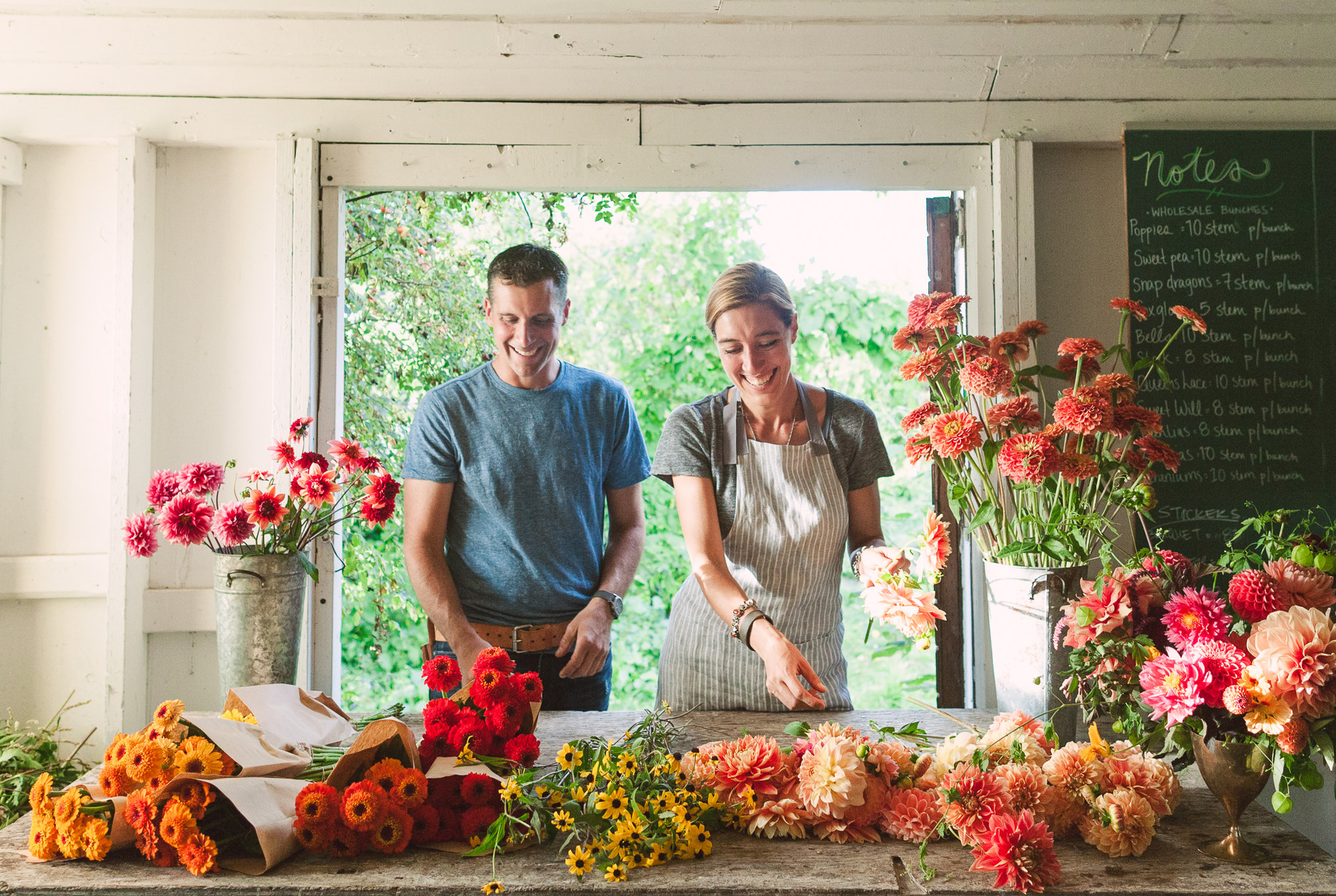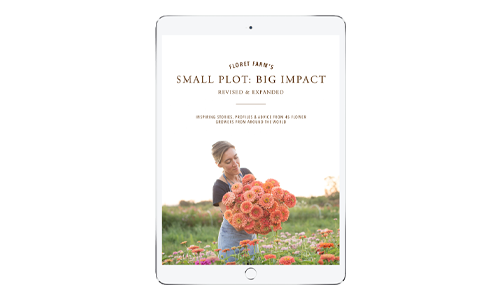It’s not hard to see why dahlias are one of the most widely grown and well-loved cut flowers. Their brilliant blooms come in a dazzling rainbow of colors, they flower from midsummer until the first fall frost, and they produce both blooms and tubers so abundantly that they always end up getting shared. Be warned though: Once you’ve been bitten by the dahlia bug, there’s no going back!
What You Will Need
Method
- Dahlias require full sun (at least 6 hours daily) to thrive and bloom abundantly. Southern growers might need to provide plants with afternoon shade if summer temperatures are extreme. Dahlias are cold sensitive and should not be planted until the soil has warmed to above 60°F (15°C) and all danger of frost has passed. Check with your local county extension office to find out the date of your last spring frost.
- Select a sunny garden spot with freely draining soil and prepare it thoroughly before planting. Amend beds with 2 to 3 in (5 to 10 cm) of high-quality compost or well-rotted manure, a light dusting of bonemeal, and a balanced organic fertilizer. Mix all ingredients into the soil to distribute evenly.
- To plant, dig a hole 4 to 6 in (10 to 15 cm) deep and place the tuber on its side, horizontally, with the growing eye facing up. Refill the hole with soil. Dahlias get quite large, so allow at least 12 in (30 cm) of space between plants.
- Dahlias require consistent water throughout the growing season, so install soaker hoses or drip irrigation while they are still young. Dahlias should not be watered until you see the first green shoots poking through the ground; overwatering before shoots are visible can lead to tuber rot. After plants reach 8 to 12 in (20 to 30 cm) tall, give them a hard pinch by snipping out 3 to 4 in (7 to 10 cm) of the growing center to encourage low basal branching, which increases flower production and overall stem length.
- Slugs and snails damage young plants, and earwigs ruin the flowers. Put down bait at planting time and periodically throughout the season. Sluggo Plus is an organic option that’s safe for both children and pets and works well against all three pests.
- By midsummer, you’ll need to stake tall plants to keep them from falling over. For home gardeners with just a few plants, place tall, sturdy posts next to tubers at planting time so you can tie stems to them as they grow. For flower farmers, I recommend the corral method, which involves placing a metal T-post every 10 ft (2.4 m) along the outside edges of the beds and stringing a double layer of bailing twine from post to post.
- While dahlias are not terribly long-lasting cut flowers, you can get 5 to 7 days from stems cut at the proper stage. Since dahlias don't open much after they’ve been harvested, it’s important to pick them almost fully open, but not overly ripe. Check the back of each flower head, looking for firm and lush petals; papery or slightly dehydrated petals are a sign of age. Be sure to use floral preservative in the water.

